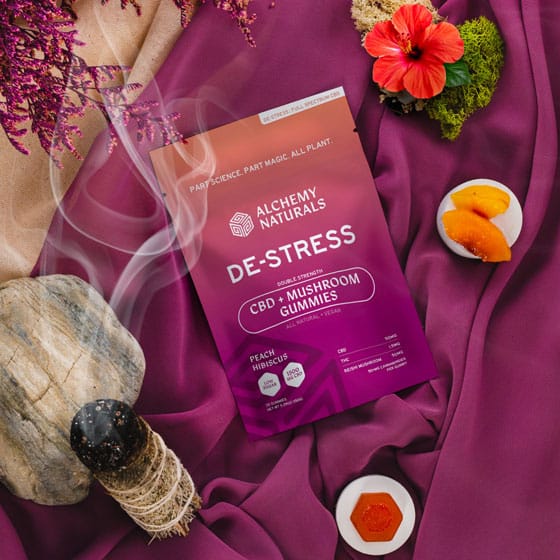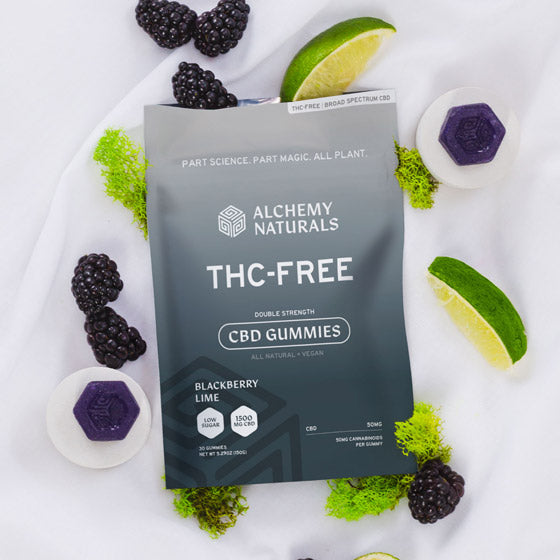Cannabinoids such as CBD (cannabidiol) and CBG (cannabigerol) are quickly becoming more and more popular. They’ve become a major talking point among users, medical experts and in the mainstream media. You’ve likely already come across news reports, documentaries and studies about marijuana’s therapeutic properties and how it’s being used to treat medical conditions. And now, a debate is picking up pace on the effectiveness of CBG for pain relief, and whether CBG oil can someday outcompete THC (tetrahydrocannabinol). In this article, we're going to take a close look at CBG’s benefits.
CBG and Pain Relief
Research suggests that at the root of all pain lies inflammation. It stands to reason that we need to first target the root if we want to eliminate pain, rather than simply lessen it. We need to look at the source. That’s where CBG for pain relief steps in, as many people nowadays feel it can help us tackle the problem.
What Is CBG?
You've heard a lot about THC, CBN (cannabinol) and CBD, and you would’ve come across comparisons, such as which one is better between CBN and CBD, and so on. It’s now time we talk more about the lesser known cannabinoid, CBG, before we go into its possible medicinal values.
CBG is basically one of multiple cannabinoid compounds found in the cannabis plant. It interacts with the receptors in the human body called ‘cannabinoid receptors’, which are located all over your nervous system and immune system. CB1 and CB2 are two very common receptors, but there are more than 100 other types of receptors that cannabinoids such as CBG interact with.
Since CBG interacts with so many different receptors in your body, it can have an impact on various conditions. Some studies have shown that CBG can reduce inflammation and pain. It may assist in treating certain types of arthritis and other inflammatory conditions, such as Crohn's disease and ulcerative colitis.
Effects of CBG on the Body
CBG is often hailed as the ‘mother of all cannabinoids’ because researchers have found that it is the precursor or source for most other cannabinoids, including THC and CBD. Apart from being an effective antibacterial, antifungal and antiparasitic agent, CBG has been shown to have anti-inflammatory properties.
It’s important to note that CBG does not produce a high as THC does, and it can help treat pain and other medical conditions where psychoactivity is not wanted. This means that taking CBG for pain relief might help address the root cause of the problem.
Here are Some Other Effects of CBG
Sedative Properties: CBG has sedative properties and could help restore sleep by making your mind and body relax before bedtime. If pain is keeping you awake, taking CBG for pain relief can help you slip into much needed slumber.

Relief from Anxiety: Since CBG has been shown to reduce anxiety levels in mice exposed to stressful situations, it may also be effective at reducing anxiety in humans. Research on this possibility is well underway.
Anti-Inflammatory Properties: Scientists have found evidence that suggests CBG clearly has anti-inflammatory properties, as we already pointed out earlier in this article.
Understanding What Cannabinoid Receptors are:
Here’s making sense of the two types of cannabinoid receptors in our bodies:
- CB1: These receptors can be found in the brain and the vast nervous system network.
- CB2: These receptors are primarily based in the immune system, but can also be found in other parts of the body.
Now, here’s what CBG can do. It latches on to both types of receptors, which makes researchers believe that anandamide's function is boosted by this cannabinoid. What is anandamide? It’s an essential neurotransmitter that has a significant impact on how we feel pleasure and motivation.
The boosting of anandamide can also bring about balanced sleep patterns and improved appetite. With all that, of course, CBG can manage our response to inflammation and pain.
CBG for Pain: How Does it Work?
The rare cannabinoid CBG has been shown to have a lot of potential for treating ailments and diseases, which is why we’re seeing an uptick in studies being done on it. When the body ingests the cannabinoid, receptors break CBG down into CBD, THC and other compounds. While you won’t get a high from CBG, it's basically a gateway to other cannabinoids - and the medicinal benefits that come with a few of them.
When CBG enters your bloodstream and interacts with your endocannabinoid system (ECS), it has several effects on your body that you might like, although not on the psychoactive front. Some people seek relief from inflammation without feeling sedated or foggy-headed as they do when they use THC products. Others just want an alternative way to feel relaxed without being high. If this demand sounds familiar to you, CBG could be your best bet!
Frequently Asked Questions on CBG
Can CBG help with Anti-Aging?
CBG has been studied for various things, including its ability to reduce oxidative stress, as this research shows. So, let's talk about what oxidative stress is, and its effect on the body's aging process. Oxidative stress is a situation when there’s no balance between free radicals and antioxidants in the human body. It also happens to be one of the top culprits of speeding up your aging process.
Oxidative stress is also known to trigger neurocognitive disorders, such as Alzheimer's. So, while CBG may not necessarily reduce the natural physical signs of aging, it may help in tackling diseases associated with old age. This is because CBG has proved its effectiveness as a neuroprotective agent. It may not only help reverse certain neurological conditions, but it can possibly help stop them from developing.
CBG or THC: What’s Better for Pain Relief?
THC has been studied as one of the most effective cannabinoids for pain relief. So how does CBG compare with THC? Between 1990 and 2000, many studies were done by researchers to try and understand the relationship THC has with pain and inflammation. Here's what was discovered:
- THC is reportedly 20 times more effective as an anti-inflammatory agent than aspirin.
- It’s 2 times more effective as an anti-inflammatory agent than hydrocortisone.
- It does not have the side effects, such as internal bleeding, which aspirin and hydrocortisone have.
But the problem with THC is that it’s a psychoactive cannabinoid; it’s not a great option for most people. So the question is, can CBG as a non-psychoactive cannabinoid offer the same pain-relieving results?

Studies such as this one continue to indicate that CBG can be a really potent and well-accepted anti-inflammatory agent and pain reliever in the days to come, apart from possibly also fighting obesity. Slowly but steadily, the evidence is expected to tilt in CBG's favor.
How Is CBG Extracted?
CBG is extracted from young cannabis plants as more mature plants tend to have lesser quantities of the cannabinoid. Once the plants are harvested, CBG can be extracted from them using CO2 extraction methods, such as the ones used in producing CBD oil.

Where to Buy CBG?
The simplest way to get hold of the cannabinoid is to purchase CBG oil from a seller that displays its third-party lab reports. Third-party lab reports are independent test results confirming that you can trust the brand and its CBG products. This holds true for all cases - whether you are purchasing CBD + CBG gummies for pain relief, THC vape, or CBG oil - you should always buy from a company you can trust.
How to Use CBG Oil?
You can either take CBG oil directly or combine it with other products, such as CBD oil, to get all the benefits that you can. CBG oil can be taken under the tongue or added to your favorite breakfast smoothie. How you’ll consume it is totally up to you. If you are an avid exerciser, try taking a few drops of CBG oil after your workout, and you might just notice a boost in your muscle recovery. Gym enthusiasts can also try out CBG for pain relief, as we all know that muscle recovery can be a tedious process.
CBG and Pain: The Final Word
When you're dealing with pain, inflammation, insomnia or some other chronic health issue, it’s always important to keep an open mind and to think out of the box. Often, you're in two minds about whether you should go for hemp-derived cannabinoids to tackle pain.
Well, we can see that there are plenty of studies and anecdotal evidence that lean in CBG's favor. Of course, we need to see more long-term human studies done before we can fully understand the cannabinoid and its effect on pain. In the meantime, CBG certainly seems to gather some support as a potent pain reliever that won’t give you a high, unlike THC.
As pointed out earlier, go for CBG oil, and buy it only from a trusted source, if you decide to use the cannabinoid. The smart thing to do is to take it with CBD oil, so that you can get the best of both worlds!









